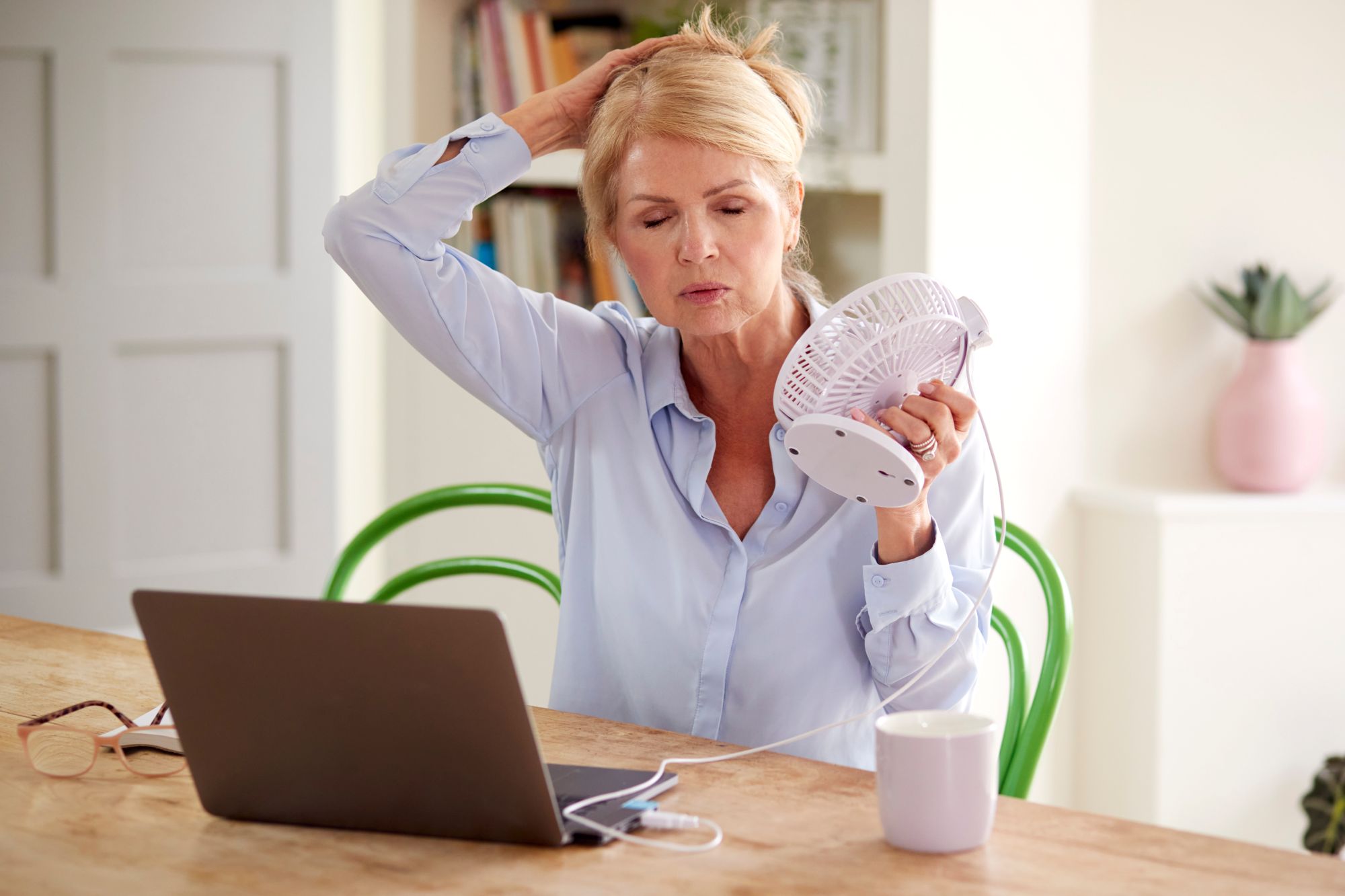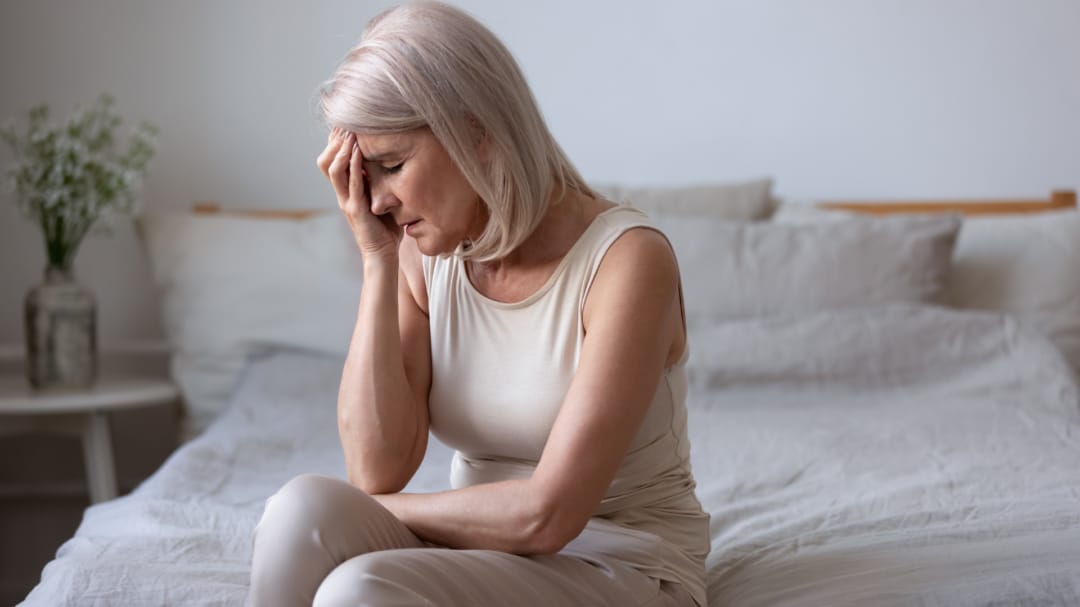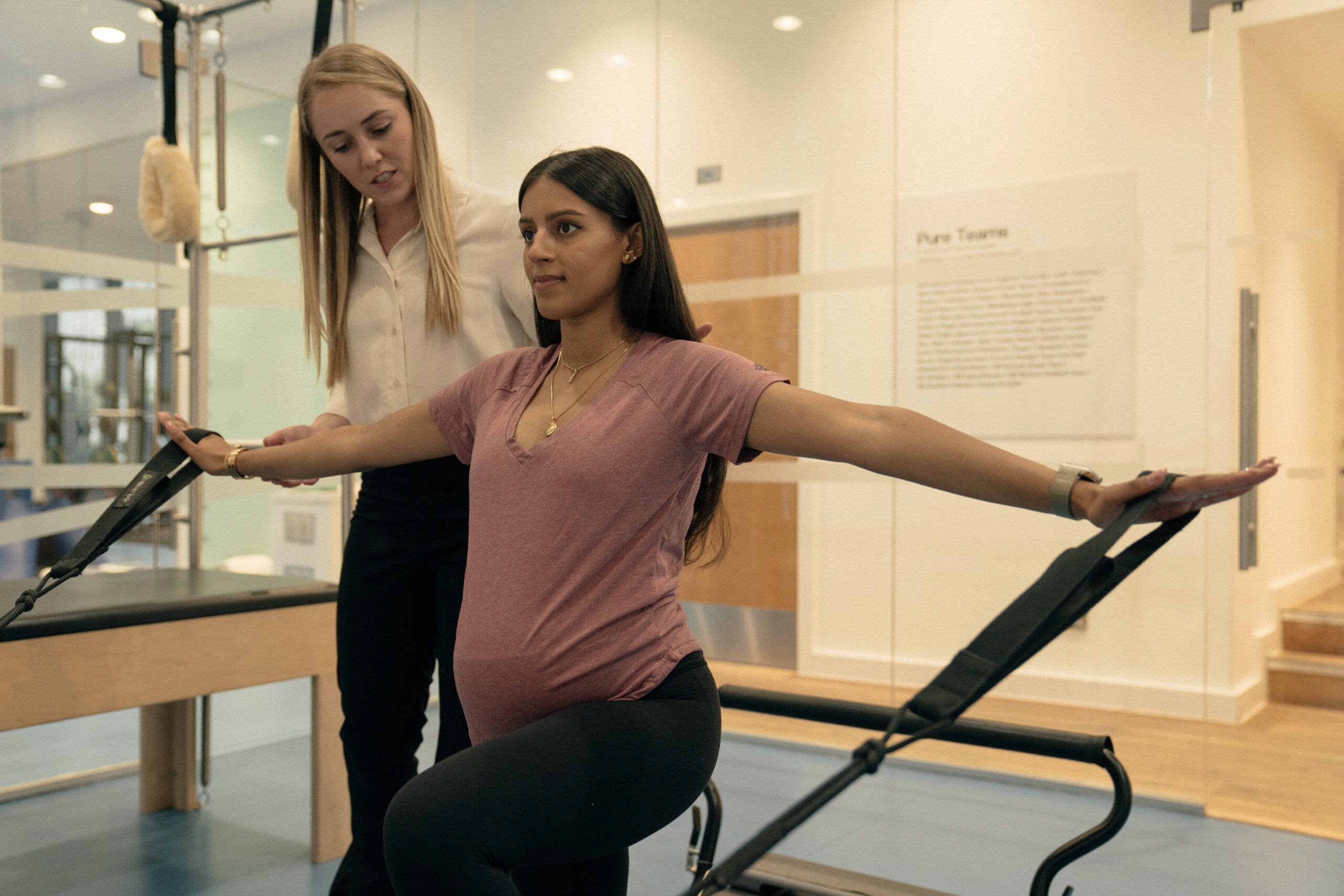Menopause Uncovered: Surprising Symptoms & Taking Control

Dr Sarah Rollins
Consultant in Sport, Exercise & Musculoskeletal Medicine
- 17 October, 2025
- Exercises Medicine
- Menopause
- Women's Health
- Pain Management
- 7 min read
Menopause Uncovered: Surprising Symptoms & Taking Control
If you’re in your late 30s, 40s or early 50s and have started to notice unusual changes in your body, whether it’s mood swings, disrupted sleep, unexpected bloating or new aches and pains, it’s possible you’re beginning to experience menopause symptoms. The truth is that this transition can look very different for every woman and understanding the full picture of what to expect can help you feel more in control.
All women will experience the menopause at some time in their lives, and while exact numbers are difficult to determine, we estimate that around 13 to 15 million women in the UK are either currently experiencing or will eventually go through menopause. This estimate is based on available population data and the number of women aged over 35, who are most likely to be in or approaching this life stage.
At Pure Sports Medicine, we understand how complex this phase of life can be, and we’re here to support you with expert, integrated care designed to help you feel and perform at your best.

Understanding the Stages of Menopause
Menopause isn’t a singular event, but a transition that unfolds over several years, moving through distinct stages:
- Early menopause symptoms can appear in your late 30s. Changes are triggered by fluctuating oestrogen and progesterone levels and can affect mood, memory, digestion and joint health.
- Menopause is officially diagnosed once you’ve gone 12 consecutive months without a period. The average age in the UK is 51.
- Post-menopause refers to the years following menopause. While some symptoms may ease, others, such as joint stiffness or vaginal dryness might persist.
It’s not uncommon to experience symptoms of early menopause, with some women noticing menopause symptoms at age 44 or even earlier. In other cases, menopause symptoms at age 55 or even age 60 may mark the beginning of the transition. Some individuals can even go through premature menopause, which can even be before the age of 40.
So, whatever your age, it’s important to recognise what’s happening in your body and know that help is available.
The Most Common Symptoms of Menopause
Many women experience a combination of physical, emotional, and cognitive changes that can vary in severity and frequency. Most people are familiar with the classic signs of menopause: hot flushes, night sweats, and irregular periods, but hormonal shifts during menopause affect nearly every system in the female body. Some menopause experts are saying musculoskeletal pain (including joint and muscle pain) is the most common symptom of perimenopause and the overall prevalence of musculoskeletal pain in perimenopausal women is approximately 71%.
1. Physical Changes
Physically, the female body undergoes notable changes. Periods may become irregular, meaning they become longer, heavier, or closer together before they eventually stop although this may go on for several years. The first subtle sign of perimenopause is a shortened menstrual cycle and a varying cycle length. Many women also notice they’re losing hair and gaining weight, particularly around the midsection. The drop in oestrogen is also linked to inflammation and cartilage health and often leads to joint pain and muscle stiffness. As oestrogen declines the risk of cardiovascular diseases, diabetes and osteoporosis also increases.
Other common symptoms include:
- Vaginal dryness can lead to discomfort or increased urinary tract infections.
- Bloating and changes in digestion, especially around your period or ovulation, if you’re still going through the menstrual cycle.
- Persistent fatigue or insomnia
- Lack of stamina, particularly during exercise or high-stress periods.
- Skin changes, including dryness or itchiness
- A general sense of being “not quite yourself,” emotionally or physically.
- Bladder changes including leakage, urgency, and needing to pee in the night.
Dr Sarah Rollins, Consultant in Sport, Exercise and MSK Medicine at Pure Sports Medicine explains: “The female hormones, oestrogen and progesterone, which are released cyclically from the ovaries, dominate most women’s hormonal life from puberty onwards. Hormones are chemicals that are transported in the blood stream and they pass to every cell in the body, switching on or turning off the expression of our DNA at a cellular level. It is no surprise that the chaotic time of the perimenopause with fluctuating hormones levels or the menopause, with an absence of these hormones, is a time of great change for women, with an effect on so many bodily systems.”
2. Vasomotor Symptoms
One of the most talked-about effects of menopause is the presence of hot flushes. Vasomotor symptoms affect as many as 80% of midlife women, but these sudden waves of heat, often followed by sweating and a red or flushed face, can be disruptive. Hot flushes that occur during sleep, otherwise known as night sweats, are just as common, which can result in poor rest and next-day fatigue. Some women have also reported cold flushes, where the body suddenly feels chilled after a surge in heat, which can feel just as uncomfortable.
3. Emotional and Cognitive Changes
Fluctuating hormones throughout this life stage can present challenges. During perimenopause, women may experience mood changes, increased anxiety, low mood, or a sense of emotional instability and bouts of rage. You might feel irritable, overwhelmed, or tearful more often than usual, or even have bouts of low mood and depression.
Cognitive symptoms such as “brain fog”, which encapsulate forgetfulness, increased difficulty concentrating, and mental fatigue, are also common. These perimenopause emotional symptoms often catch people off guard but are a recognised and treatable part of the menopausal experience.
Other common symptoms:
- Loss of libido
- Sleep disorders
“The human brain is protected from the bloodstream that comes from the rest of the body by something called the blood-brain barrier. Both oestrogen and progesterone are fat soluble however and easily cross this barrier, having a direct effect on the cells of the brain,” comments Dr Rollins. “We are all used to thinking about mood changes around the menstrual cycle, but it is easy to forget or fail to understand that this is driven by chemical messengers. Where women are considered ‘hormonal’ when they are sad or angry or irritable or anxious, we literally are at the mercy of a direct chemical action on our brain cells. It is something to understand and potentially treat, rather than something to be criticised for or to feel guilty about.”
Uncommon (But Completely Normal) Menopause Symptoms
Not all symptoms are widely known, but that doesn’t make them any less valid. If you’ve experienced something unusual, it could still be tied to menopause. These symptoms are real, even if they’re not commonly discussed. Understanding the full spectrum of changes during menopause can help you feel more in control of your health
Some unusual menopause symptoms include:
- Dry mouth or a burning sensation on the tongue, sometimes called “burning mouth syndrome.”
- Itchy skin or rashes, which can be related to thinning skin or reduced collagen but sometimes a direct hormonal effect.
- Nausea and dizziness, which can occur due to changes in blood sugar levels, hormone fluctuations, effects on the ear balance system or changes in gut motility.
- Frozen shoulder, a painful condition that has been linked to oestrogen decline.
- Digestive symptoms, including diarrhoea or constipation.
- Tinnitus, or ringing in the ears.
Some women even report new body odour changes or find that perfumes and deodorants no longer work the same. This may be due to increased sweating and hormonal imbalance.
Menopause Symptoms Checklist
If you’re unsure whether what you’re feeling is linked to menopause, here’s a quick list of signs to watch for:
Hot flushes or cold chills
Irregular periods or spotting
Mood changes, anxiety or brain fog
Trouble sleeping or chronic fatigue
Joint pain or lack of energy
Vaginal dryness or urinary incontinence
Hair thinning or skin irritation
Digestive changes (bloating, nausea, diarrhoea)
Weight gain or body composition changes
How Long Do Menopause (and Perimenopause) Symptoms Last?
On average, symptoms can last for seven to 10 years, with symptoms sometimes continuing into post-menopause.
Perimenopause – where you still have a period but experience menopausal symptoms lasts for four years on average but can be as long as 10-15 years.
Perimenopause symptoms may also come and go. Many women find that symptoms do gradually subside over time, but others experience long-term changes that require support.
It’s also important to note that some symptoms, like vaginal dryness or joint pain, may continue into post-menopause, especially without treatment or lifestyle adjustments.
“Before the ovaries stop releasing hormones altogether, they go through a period of more chaotic hormone release,” adds Dr Rollins. “Sometimes the ovaries may operate normally for a few months, sometimes they may stop for a time, which can be associated with times of intercurrent illness, arduous physical exercise regimes, mismatched calorie intake (too little) or psychological stress, including work related stress – anything that stresses the body.”
“However, all women will experience something different, depending on their individual lives. What one woman needs to help her with symptoms may be completely different to the next woman.”
When to Seek Support
If your menopause symptoms are affecting your quality of life, professional support can make a real difference.
Symptoms that warrant medical review include:
- Unusual or persistent bleeding, such as spotting instead of a period or no period for 10 months, then bleeding.
- Anxiety, mood swings, or depressive symptoms
- Ongoing joint or muscle pain, especially if it interferes with daily activities
- Persistent exhaustion or severe sleep disturbances
- Changes in digestion, such as ongoing nausea, bloating, or diarrhoea
- Weight loss or gain without explanation
- Unusual headaches, dizziness, or palpitations
- Emotional distress or feeling overwhelmed
How Pure Sports Medicine Can Help
At Pure Sports Medicine, our multidisciplinary team offer tailored care for women at every stage of life and can guide you through all aspects of this transition. We will work with you to support your body and mind with expert, evidence-based care, with services that are designed to empower you through our Women’s Health Services.
Our key menopause-support services include:
- Physiotherapy for joint, tendon and muscle pain, pelvic health, incontinence, and mobility
- Pilates to build strength and improve recovery
- Nutrition to help with weight management, bloating, inflammation, and support hormone balance
- Strength & Conditioning to reduce symptom severity and improve energy levels
- Ongoing Support for anxiety, mood changes, and stress
- Regular exercise, including resistance training and low-impact movement, can also reduce menopause back pain, improve mood, and support bone density.
- MSK issues associated with the menopause. Dr Sarah Rollins holds the British Menopause Society Certificate of Management of the Menopause and can assess MSK issues and advise on menopause medical treatment, including HRT.
Empowering You Through Menopause
Every woman experiences menopause differently. Some sail through with mild symptoms; others face drastic changes that affect their body, mood, and energy levels. No matter your symptoms, our expert clinicians at Pure Sports Medicine are here to help you move, feel, and live better throughout your menopause journey. If you’re ready to take control of your health, our team is here to help!
Book a consultation today to speak to one of our clinicians and build a personalised plan that supports your body, now and into the future. Take the first step toward understanding and managing your menopause symptoms with confidence.

Advice
Over the last 20+ years our experts have helped more than 100,000 patients, but we don’t stop there. We also like to share our knowledge and insight to help people lead healthier lives, and here you will find our extensive library of advice on a variety of topics to help you do the same.
OUR ADVICE HUBS See all Advice Hubs

